Where Did Riverdale Go Wrong?
Jul 16, 2019 • 138 views
Talk of a series so full of potential, having everything ranging from high school drama, thrill and suspense, subverting of tropes and shattered stereotypes, especially for one that has been based on a series of Comics. The dark vibe this show aimed for was adopted from the 2015 Archie Comics, which were also referred to as New Riverdale. This series could have been much more, had the writing board taken the plots seriously, made the characters slightly immature not in a reckless way but framing it around the childlike obliviousness that most fifteen to sixteen year olds possess. Instead we get overlapping storylines that refuse to coincide, character inconsistency, and lack of communication between the characters involved in a certain narrative. It is not atypical for a series to harbour plot inconsistency, and gaping flaws, only that Riverdale almost always repeats mistakes blatantly.
Our Story is about a town, a small town. And the people who live in the town. From a distance it presents itself as so many other small towns . . . . safe, decent, innocent. Get closer though, and you start seeing the shadows underneath.
Season one begins with the impression that Riverdale was a town of peace and quiet, where nothing extraordinary ever happened.
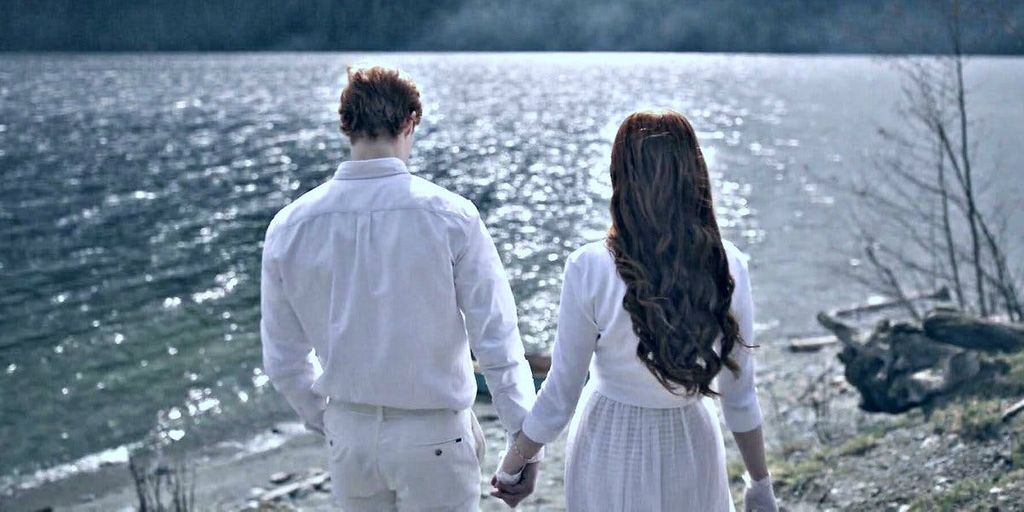
The Murder of Jason Blossom was the point from which the actions begin, the ‘secrets’ of the town unfold. In a very anticlimactic way we are made to understand that Jason Blossom's death was lead by an accidental decision on the part of Blossom twins to help Jason elope with his pregnant girlfriend, Polly Cooper, Betty Cooper's sister. The execution of the mystery is sharp, uniform, the revelation does not feel undercut or rushed. It takes the form of a typical highschool drama, removing the stale stereotypes. Archie the jock struggles with his passion for music wanting to break free of his father's hopes from football scholarship to business school, Cheryl the cheerleader is mean but her hatred comes out only towards people she feels have an unreasonable existence, Veronica divorces herself from her past that has turned bitter to make herself a kinder human being. Kevin is our first token LGBTQ+ character but unlike most media representation his interests are sporty, and Judhead is the brooding, not loveless, cynical character who aims to be an honest teller of stories, that may or may not have happened. Some may argue that in the process of eliminating stereotypes the show gave birth to more tropes but that is subjective. Even though the trope of a teen mistake is romanticised under the parenthesis of death and progressively, decay, season one keeps the plot uniform and character definitions intact and but by the second season they slowly start to fall apart.
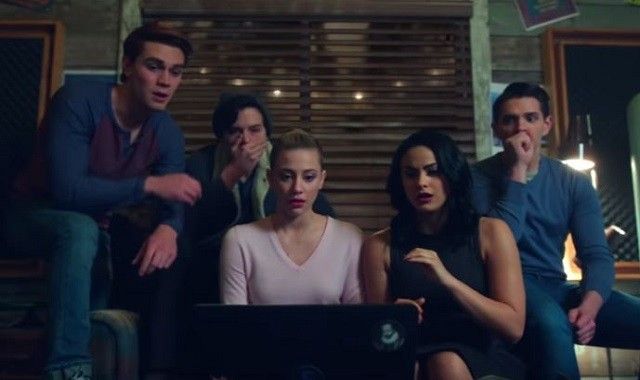
It becomes more of a classic slasher 'who's next’ than the 'who dunnit’ theme it debued with. While in season one the characters acted towards a certain point even though the execution took place in individual levels, unlike in season two where the plots of Black Hood murderer, the Southside Serpent discord and the entry of Hiram Lodge overlapped and not in a cooperating way. Characters begin to fall apart, Kevin the only openly gay character does not show any growth and Betty suffers alone from Black Hood's ribbing instead of letting anyone know, until the very last when Archie is let in. Jughead faces is own demons being a newly recruited Serpent and his loyalties clash, the character transforms from the loveable cynic to the dark saviour from the night, making his way into the adult world to challenge one enormous power of Hiram Lodge. Cliqueless Cheryl is the same rich spoilt teen except her family wealth has tasted dust with the demise of her father, who left no one trained to take over the drug empire gift wrapped within his 'Maple Industry'. It is redundant to clarify how between both twins Jason is automatically assumed to be the one bearing the brunt of family business, as the first season's self awareness displays the Blossom's inherent orthodoxy. Cheryl's stint to psychotically burn her mansion down in end of season one (1x13), isn't delved into at all further in the series. Veronica, an objectively smart teen chooses to remain oblivious to all the shady deals her father continues to make in the name of business, becoming a caricature of her own recent-past words where she made such promises to not be a passerby to her father's criminal activities which once destroyed their lives.
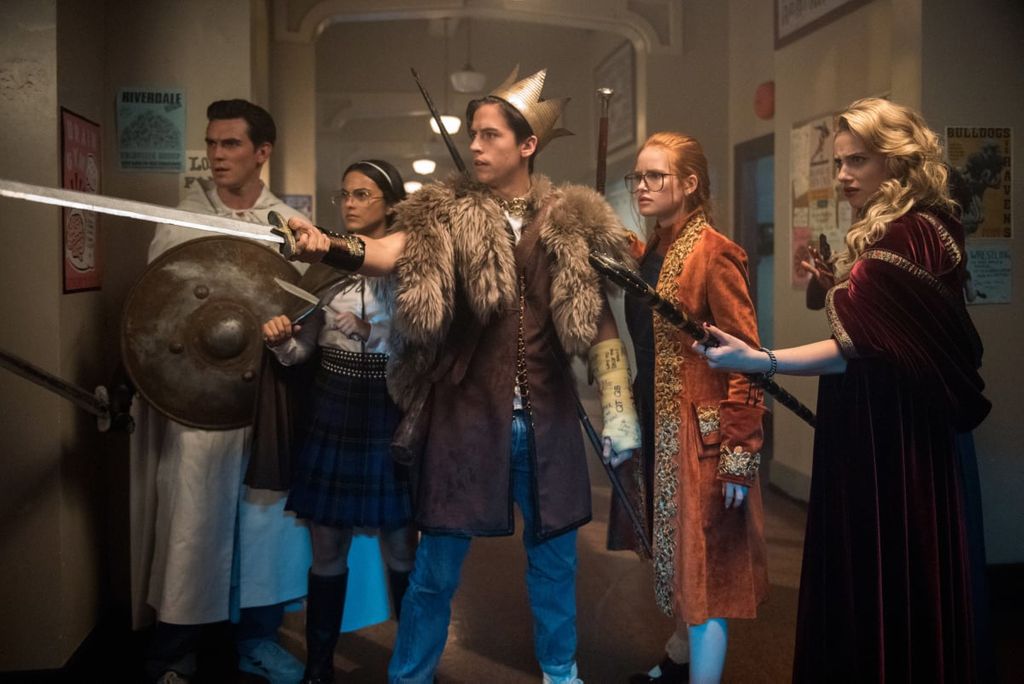
Coming to the third season, it can be agreed that it is all over the place. None of the characters communicate, compare notes, and all choose to suffer alone never once assuming that their closest friends might be going throught the same things. Plots start to split and drift apart and the story becomes a rather concocted mess of amature horror-melodrama. The teenagers do not behave like teenagers anymore, the adults become childlike, preteens aid in murders, and the children attempt at parenting they own mothers and fathers. Element of 'supernatural' is introduced only to reveal at the very disappointing end that supernatural could not sit well in this theme at all, which we as viewers had already realised with the introduction of the “Gargoyle King”, as it was a thin attempt at a metaphor for teens and their incessant drug abuse.
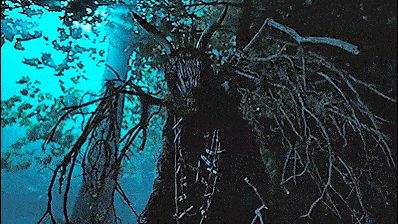
With the slow shifting of the season's direction we also see the actors growing up much faster than their respective characters, which the writing board introduces into the season as their ability to inherently bait the world into believeing that they are not a bunch of 17 year olds. Ranging from Archie's conviction (quite naturally pinned by Father Lodge) for the murder of an individual while he was out relaxing on the trip with his friends, to the history Alice Cooper feeds her daughter about the re-emerging Griffins and Gargoyle dangers. Both these episodes were used to enact a court drama and substitution of base actors casted as the teen version of their parents-- who were then battling with their personal issues -- to spice the romance with juggling permutations of partners.
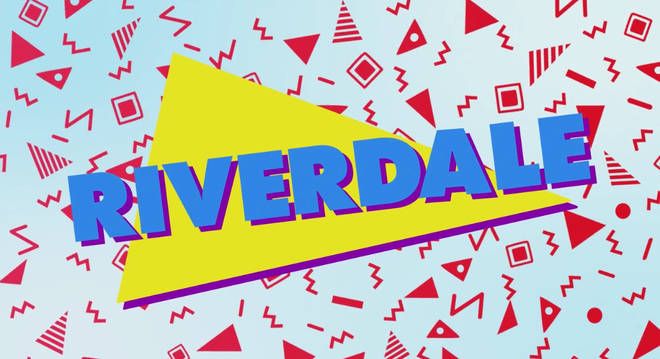
The use of the “farm” as a cult is not nuanced and completely unimportant as it does not add to the value of the story in anyway. It only acts as a cheap tactic to carry forward as exuse that somehow turns more and more characters against Betty Cooper making it her personal vendetta to eliminate what she considers a viable threat to her sanity.
Building upto the fact that the Farm is indeed something evil, since it has been stealing kidneys from innocent healthy teenagers, making them believe it is for their own good , the ending does not deliver. The season finale is only a weak attempt at executing a cliffhanger in order to allow the suspense linger by simply not answering a bundle of unintermitten questions. It would not be reasonable to even call it a tactic since the writers do not make any effort to reward the viewers through the pain of bearing through the hodgepodge of two whole seasons of unrealistic, unsatifying drama.
